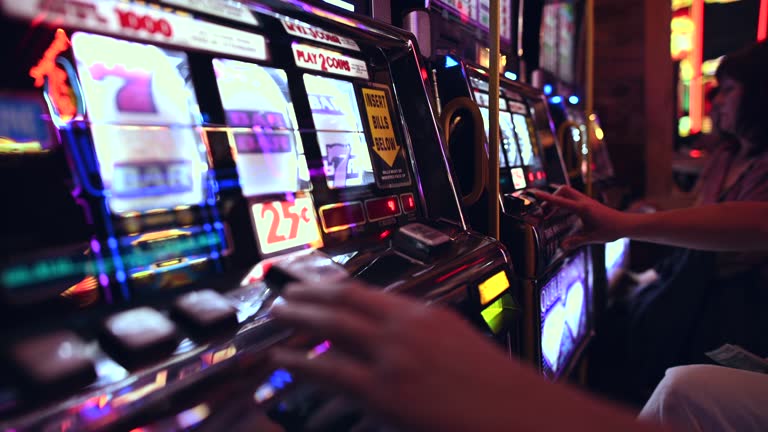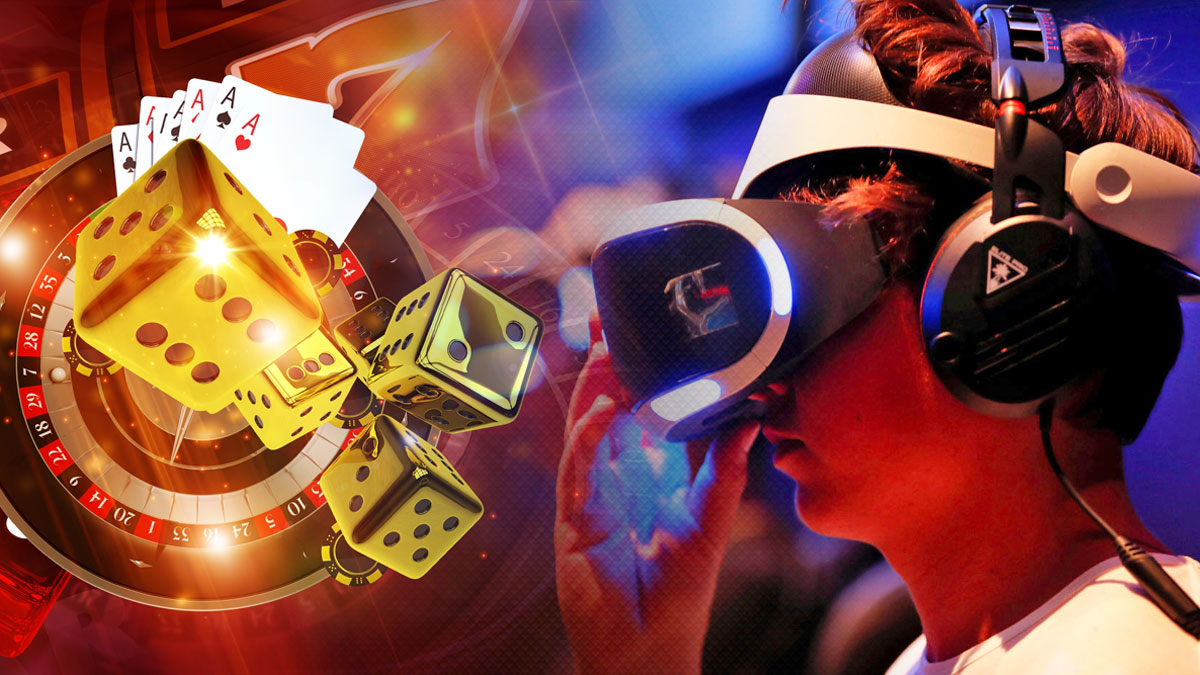When the lights are off, when the world is quiet, when loneliness feels like the only constant companion, a curious phenomenon unfolds in the digital glow of online casinos like Rabona casino. Players bet not always to win money, but sometimes simply to prove – to themselves more than anyone else – that they’re still here, still breathing, still capable of feeling something.
Betting in isolation can become an existential statement: an internal whisper, “I’m still alive,” voiced in silence, heard by no one except the spinning reels or the clicking buttons. To outsiders, it seems like a pastime or a risky game. But for those who sit alone, pressing “spin” again and again, it can be a lifeline – a solitary confirmation of their own existence.
This article explores the deep psychological motivations behind gambling as a means of affirming life, especially when no one else is there to hear.
Gambling and the Need for Emotional Proof
Silent Signals of Existence
When life feels monotonous, repetitive, or emotionally muted, people search for small proofs of existence. Gambling, particularly at online platforms, provides instantaneous emotional feedback – excitement, anxiety, joy, frustration – feelings that vividly remind players of their emotional vitality.
For individuals caught in emotional numbness or isolation, the surge of adrenaline triggered by a single bet becomes more valuable than the winnings themselves. It proves that, deep down, they can still feel deeply and genuinely.
The Validation of Risk
Humans inherently link risk-taking to feeling alive. From extreme sports to public speaking, putting oneself at risk (emotionally, physically, financially) triggers an undeniable sensation of being vividly present. Gambling, although virtual, replicates this dynamic by constantly putting something at stake, thus reaffirming the gambler’s very existence.
Gambling as a Response to Emotional Isolation
Alone in the Crowd: Digital Solitude
Despite digital connectivity, loneliness has become a widespread modern condition. People may have hundreds of virtual friends, yet feel utterly disconnected. Casino’s accessibility provides a paradoxical solution: although gambling is solitary, the responsive nature of casino games creates a pseudo-interactive experience. Each click responds; each bet acknowledges the player’s existence.
A Conversation with the Machine
In gambling, the slot machine or roulette wheel acts as an interlocutor – silent but responsive. Players form a secret dialogue: every bet asks, “Are you there?” and every outcome responds, “Yes.” Over time, gambling transforms from mere entertainment into an existential exchange, providing a sense of acknowledgment – even if it’s just from an algorithm.
Why Gambling Feels So Real
Immediate Emotional Feedback
One key reason gambling effectively counters emotional numbness is its immediacy. Each bet at casino has an instant outcome, triggering emotional responses on the spot. This immediacy contrasts starkly with daily life’s often delayed and muted feedback, creating powerful emotional resonance.
Adrenaline as Proof of Life
Gambling triggers physiological responses such as adrenaline rushes, rapid heartbeat, sweating palms, and shallow breathing. These visceral reactions remind players not only that they’re alive, but that their existence has immediate, tangible significance – at least in this fleeting moment of risk.
The Psychological Mechanics of Existential Gambling
Dopamine, the Chemical of Hope
Gambling games cleverly leverage dopamine, the neurotransmitter associated with hope, reward, and anticipation. Every spin or card dealt creates a dopamine spike, generating the addictive and powerful feeling of anticipation. For isolated individuals, this chemical experience serves as emotional confirmation: “I exist because I hope, and I feel.”
Gambling and the Concept of Control
In a chaotic or monotonous life, gambling provides a sense of controlled unpredictability. At casino, players choose their stakes, their games, and their timing, creating an illusion of power and agency. This sense of control is existentially reassuring, asserting their presence and purpose in a universe that otherwise feels indifferent or silent.
Emotional Layers Behind the Bets
Sadness and the Need for Release
Beneath many betting sessions lies sadness or unresolved emotional pain. Gambling provides an emotional catharsis – a release that might not be possible through other means. Even losses offer a bizarre comfort: emotional pain is proof that they can still feel deeply.
Anger and Quiet Rebellion
Anger, often internalized, finds a subtle form of expression in betting. Gambling becomes a quiet rebellion against life’s frustrations, a small act of defiance. Every bet, every risk taken, says silently, “I am still here; I still matter.”
Fear and Confrontation with Risk
Gambling confronts fears directly – fear of loss, fear of risk, fear of inadequacy. Choosing to engage, despite these fears, affirms courage and resilience. Each bet becomes proof of inner strength, an internal confirmation that the gambler remains emotionally alive and resilient.
The Dark Side: When Gambling Becomes the Only Voice
Emotional Dependence on Risk
While gambling can affirm life in moderation, emotional dependence emerges when betting becomes the sole emotional outlet. Players become trapped, needing higher stakes and bigger risks simply to feel anything at all. The solution offered by casinos turns into a dependency – emotional numbness returns when they stop betting.
The Danger of Invisible Losses
Financial losses are visible, but emotional losses remain hidden. Excessive gambling might leave players emotionally drained, with feelings of shame, guilt, or depression. Without healthy external validation or real-world emotional support, gambling becomes a silent burden rather than a joyful affirmation.
Building Healthy Emotional Connections
Awareness of Emotional Motivations
Understanding the emotional reasons behind betting behavior is essential. Players should regularly ask themselves why they gamble: Is it to feel alive? To escape loneliness? Recognizing these motivations helps maintain a healthier emotional relationship with gambling.
Establishing Safe Boundaries
Responsible gambling means setting clear emotional and financial limits. Platforms actively promote responsible gambling tools such as deposit limits, self-exclusion periods, and session reminders. These boundaries ensure gambling remains a positive emotional experience rather than a risky emotional crutch.
Gambling as a Catalyst for Real-Life Change
From Digital Risk to Real-Life Courage
The emotional courage cultivated through gambling – the willingness to face risk and embrace uncertainty – can be redirected to real-life challenges. If a player can confront the fear of loss in a virtual space, they might also tackle emotional or professional risks outside the game.
Emotional Reconnection Through Mindfulness
Gambling experiences can be mindfully transformed into moments of self-reflection. By acknowledging the emotions triggered – anticipation, excitement, disappointment – players learn to reconnect with their broader emotional landscape. Mindful gambling can serve as a therapeutic bridge, helping individuals move from emotional numbness to genuine emotional presence.
Casino’s Role in Emotional Responsibility
Transparent Communication and Support
Casino emphasizes responsible gaming practices, transparently communicating risks, providing accessible emotional and financial management tools, and offering support resources. Recognizing the emotional dimension of gambling allows casino to protect players from the risks of isolation and dependence.
Creating Positive Gambling Environments
By prioritizing enjoyable, safe, and emotionally balanced gameplay, casino fosters healthier relationships between players and their betting habits. Gambling becomes less about existential survival and more about genuine entertainment, community, and responsible risk-taking.
Conclusion: The Quiet Affirmation of Existence
For many, gambling serves as a quiet affirmation of existence, a subtle declaration to themselves: “I’m still alive.” Platforms become spaces where the solitary player interacts not just with a game, but with their deepest emotions and unspoken existential questions.
However, this emotional language is delicate. It must be approached responsibly and consciously. The true challenge lies not in escaping emotional numbness through gambling, but in using these moments of vivid feeling to reconnect meaningfully with oneself and the world beyond the screen.
Ultimately, every bet whispers a secret message – “I’m still here, I’m still alive” – even if no one else can hear it. Understanding this message, honoring its significance, and integrating it responsibly into one’s emotional life ensures gambling remains a safe and meaningful affirmation of existence rather than a silent cry for help.




